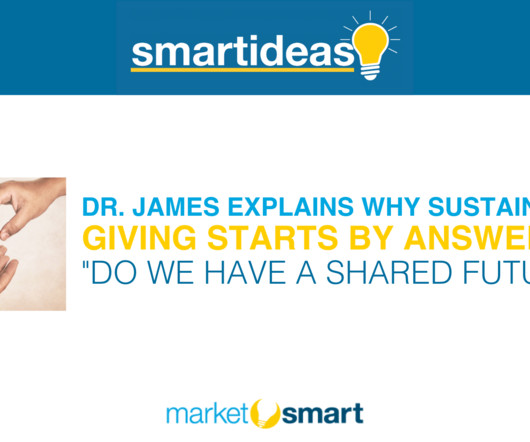The importance of expressing impact and gratitude in fundraising
iMarketSmart
JUNE 5, 2023
The universal hero story (monomyth) progresses through four steps: The compelling donation experience includes these same steps. Biologists model reciprocal altruism with a game.[1] But it helps the other player more than it costs. In the game, expressing desire for a social, helpful-reciprocity relationship is meaningful.












Let's personalize your content